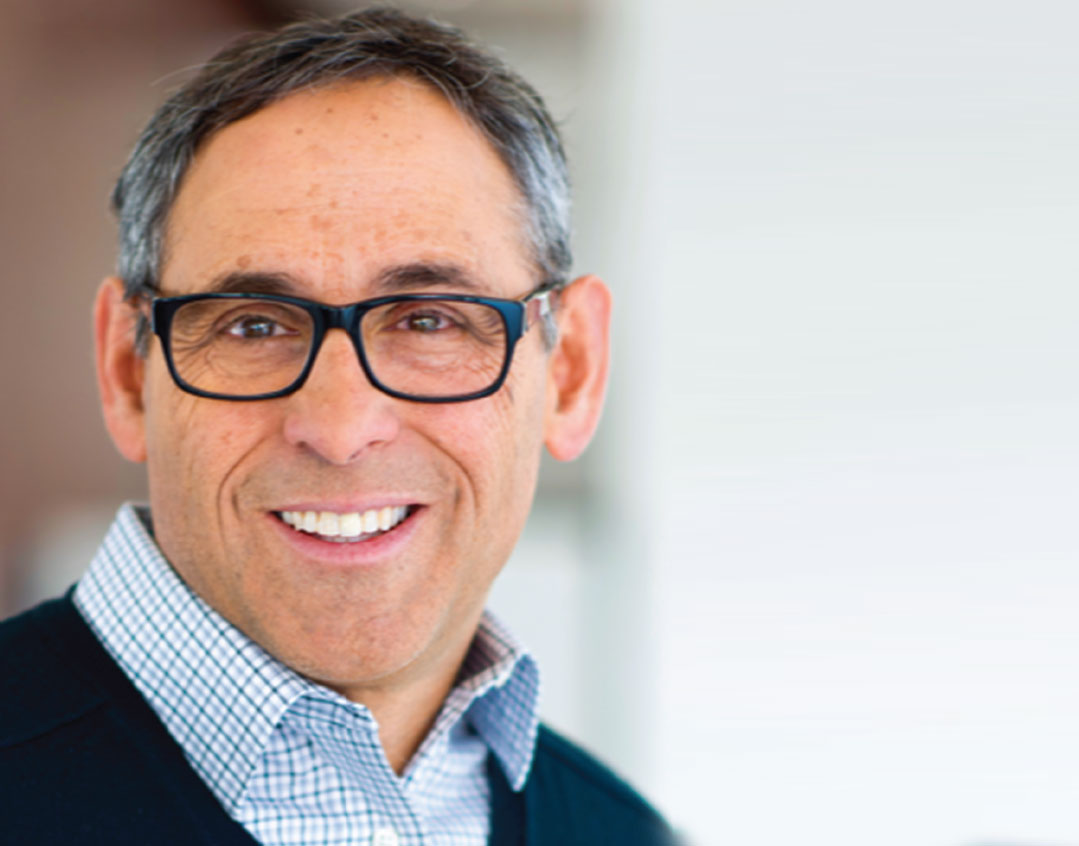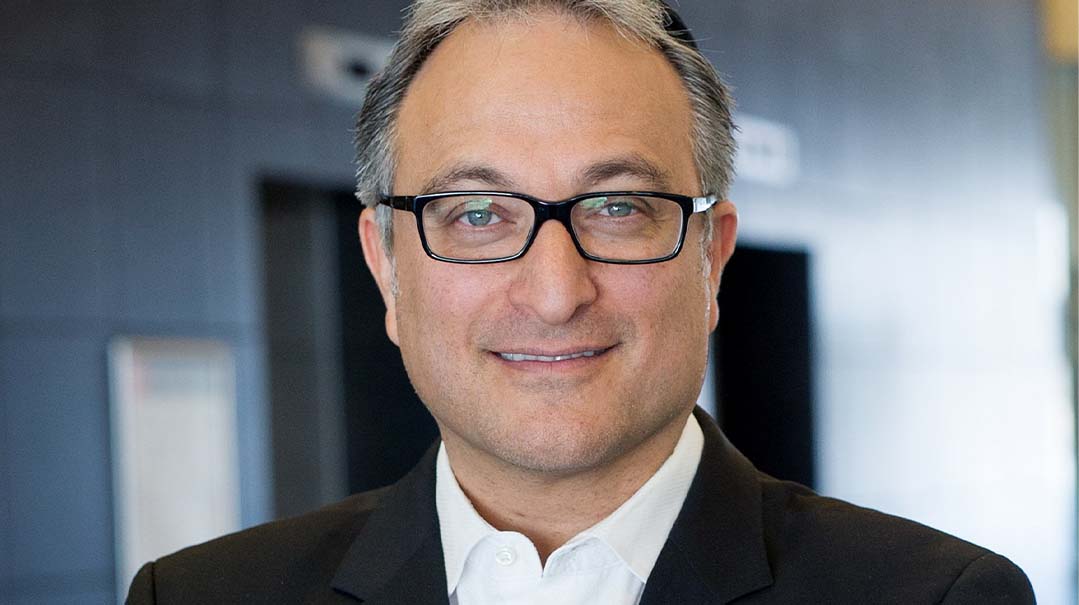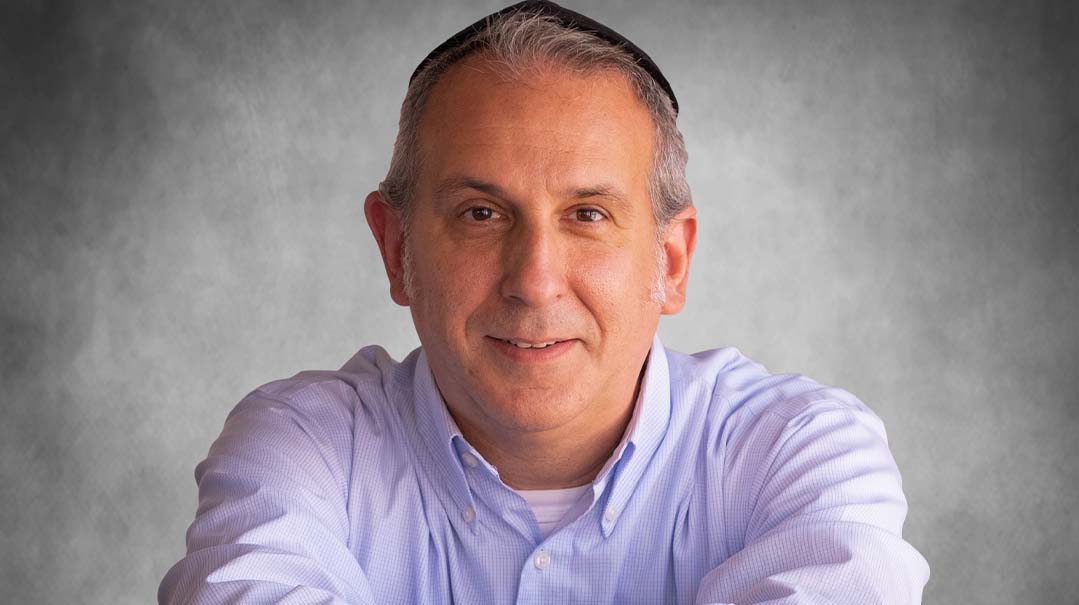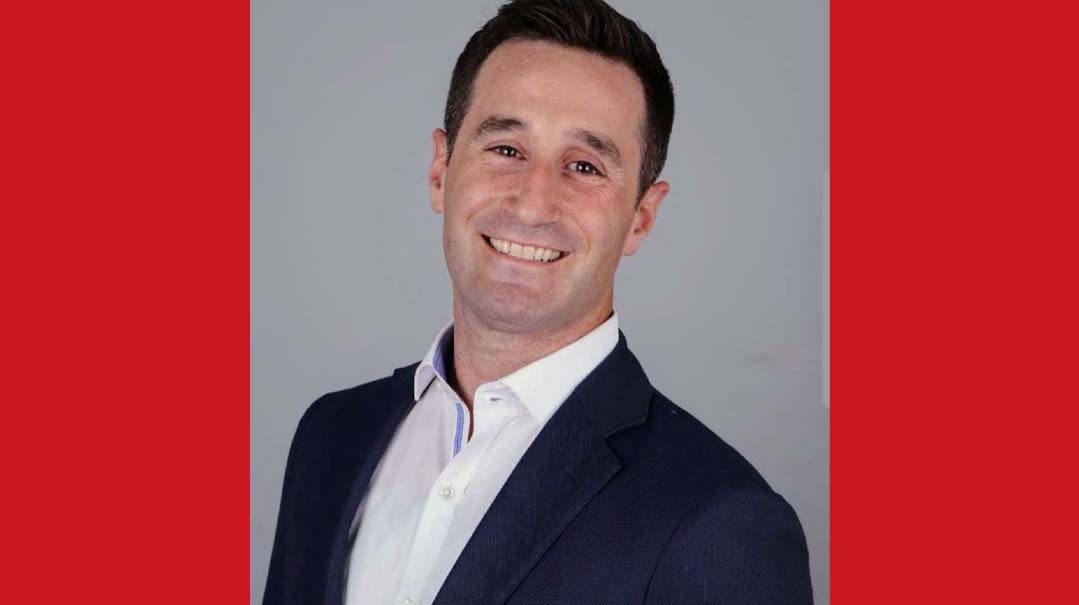Work/Life Solutions with Neil Schloss


N
eil recently retired from his executive role at Ford after 36 (!) years of extraordinary success in a series of high-level roles. With his talent for relationship-building and team management, Neil positioned Ford as a leader in best business and finance practices. Moreover, Neil was instrumental in helping save Ford during the financial crisis of 2007–2009; he and his team raised $23 billion in new capital, allowing them to avoid the bankruptcy that impacted other automakers.
Where
Born and raised in San Diego, Neil has a degree in finance from San Diego State University and an MBA from Santa Clara University. In 1990, Ford relocated him from California to Detroit — from 70-degree weather to freezing temperatures. (“What did a California kid know about living in snow?!”) Neil has two daughters, Leah and Pnina, and has been married to his wife, Terry, for almost 23 years.
Why
I was excited to share Neil’s words of wisdom for two reasons: First, his work ethic is inspiring. From ages 13 to 22, he worked numerous jobs, including washing dishes in a Chinese restaurant, assembling wheelchairs, bookkeeping, and office cleaning. Second, as a baal teshuvah since his thirties (during his time at Ford), Neil frequently speaks about the counter-pressure between religious growth and business success, explaining that you don’t have to choose just one in today’s business world.
1 of 9 What opportunities or personalities played a role in your career?
From a career perspective, I’ve strived to learn from everyone, regardless of whether they were bosses, peers, subordinates, or outside work partners and clients — it really doesn’t matter. My own leadership style was shaped by emulating those I respected and by not emulating inconsistent behaviors. I have had great bosses throughout my career — all with unique skills and behaviors to both model and not to model.
I believe that opportunities don’t just drop in your lap. You have to put yourself in position to recognize them and capitalize on them when they occur. I also believe that G-d partners in putting us in the position to succeed. Without that partnership, my career would have been different. Looking back over the twists and turns — I never would have left California for Michigan, turned down other job offers, and spent 36 years at Ford had it been only up to me.
One of the biggest opportunities for me professionally was helping Ford sustain itself through the financial and automotive crisis. What could have been career-ending became the opportunity to apply everything I learned over the 27 previous years. My team and I followed our instinct to raise necessary liquidity, repair the balance sheet, and lead the company out of the crisis. As their leader, I was put in the right position at the right time. All my professional experiences and learning benefitted me and put me in a position to deal with the reality of the environment — and make what turned out to be the right decisions.
2 of 9 Which three character traits have played a key role in your career path?
It’s quite hard to narrow down the key character traits to just three, but if I have to, I’d say honesty, work ethic, and caring about others.
Honesty is self-explanatory. Though others don’t always hold themselves to it, I feel it’s a must. If you can’t be trusted, you are done — forget leadership, forget respect, and forget teamwork.
Hard work and a solid work ethic were also always important to me. I needed to work harder in school and in my career — I didn’t have the silver spoon or Ivy League pedigree to rely on. Everything I earned came from hard work. And it was so much more rewarding than if it were handed to me. To think a kid from San Diego State could compete — and succeed — in a company full of “whiz kids”!
Lastly, caring for others is high on my list; it’s a priority that grew over time. I probably didn’t really appreciate the importance of caring until I starting managing other people (and liked it). Once others are dependent on you — OMG! — the level of responsibility grows exponentially. Caring for others, which includes teaching, mentoring, and coaching, is part of being a good leader. This means really getting to know those around you professionally, providing guidance, passing on knowledge, and providing feedback (often the hardest). I know my career would have been quite different without being honest, working hard, and treating people the way they deserve.
As an aside, I’ve been amazed by the helpfulness and caring of others to me as I develop what I’ll do next in my career. I have recently met so many people, through my network and then some, who bent over backward to help me — going out of their way to support and make introductions. Positive character traits are definitely important in one’s career — but taken further, they are crucial in one’s life.
3 of 9 What do you do to relax, recharge, or simply have fun? How do you make time for that, and how often?
The ability to relax and recharge starts and stops with Shabbat. Since I didn’t start my career being shomer Shabbat, recharging back then was quite difficult — I was on 24/7, especially during peak workload. Now that 24/7 has become 24/6, I don’t know how I would function without it. Shabbat is my time to spend in shul, with family and friends, eat great food, drink good wine and scotch, and catch up on much-needed sleep.
Other activities to just have fun include spending time with Terry and the girls and my soon-to-be son-in-law, traveling, road biking, reading, and eating out in fun kosher restaurants. Now that I’ve retired from Ford, hopefully more of these will creep into my schedule more frequently.
5 of 9 If you were granted an extra three hours per day or a spare million dollars, what would you do with that time or money?
If given a choice, I would much prefer three more hours. The hours would be here forever while the dollars would likely end up in the bank or spent — either way my satisfaction would be much higher and last much longer with incremental time. In reality, I would probably include more of several things, including Torah learning (Gemara skills, knowledge of our history, understanding why we do what we do), exercising, and trying to get a few more hours of sleep a week.
8 of 9 Can you share a time when you had to navigate the tension between your deepest values and the business world?
This is a great question and I’m sure others have great stories and dilemmas. I consider myself extremely fortunate to have avoided needing to navigate major tensions. I’ve never been asked to make a trade-off between what I believe and what the business required.
I often relate this about when I became more religious: It was 15 years into my career when I stopped working on Shabbat, and I was pretty stressed about how the work folks would react. But it was such a nonevent, I don’t actually remember what I said, how I explained it, or what reaction I received — much ado about nothing. I had full support from my management and every boss and coworker since.
Others have asked how I could work for a company like Ford, given the anti-Semitic history of its founder (the perfect trade-off question). I just respond with my personal experience. In my 36-plus years with the company, I never felt any anti-Semitism. In fact, they’ve gone overboard to respect all diversity and individual choices.
One additional point worth mentioning: I frequently speak to and mentor young religious folks who are deciding between being observant and professionally successful. In today’s business world, I believe strongly this is a myth; you no longer have to make that trade-off. I firmly believe you can be both religious and successful.
There’s such a push in the business world for diversity — and I use the broad definition of the word diversity, including not only nationality and religion, but also diversity of thought and behaviors. All are viewed as essential elements of success, since the business needs to reflect their customers, who are as diverse as they come. It’s not just okay to be observant at work — it’s respected and appreciated. People recognize the value it brings to an organization, and it shouldn’t hold you back from advancing your career. So please don’t think you need to sacrifice your success in business because you’re religious. You really can have the best of both worlds!
(Originally featured in Mishpacha, Issue 751)
Oops! We could not locate your form.






